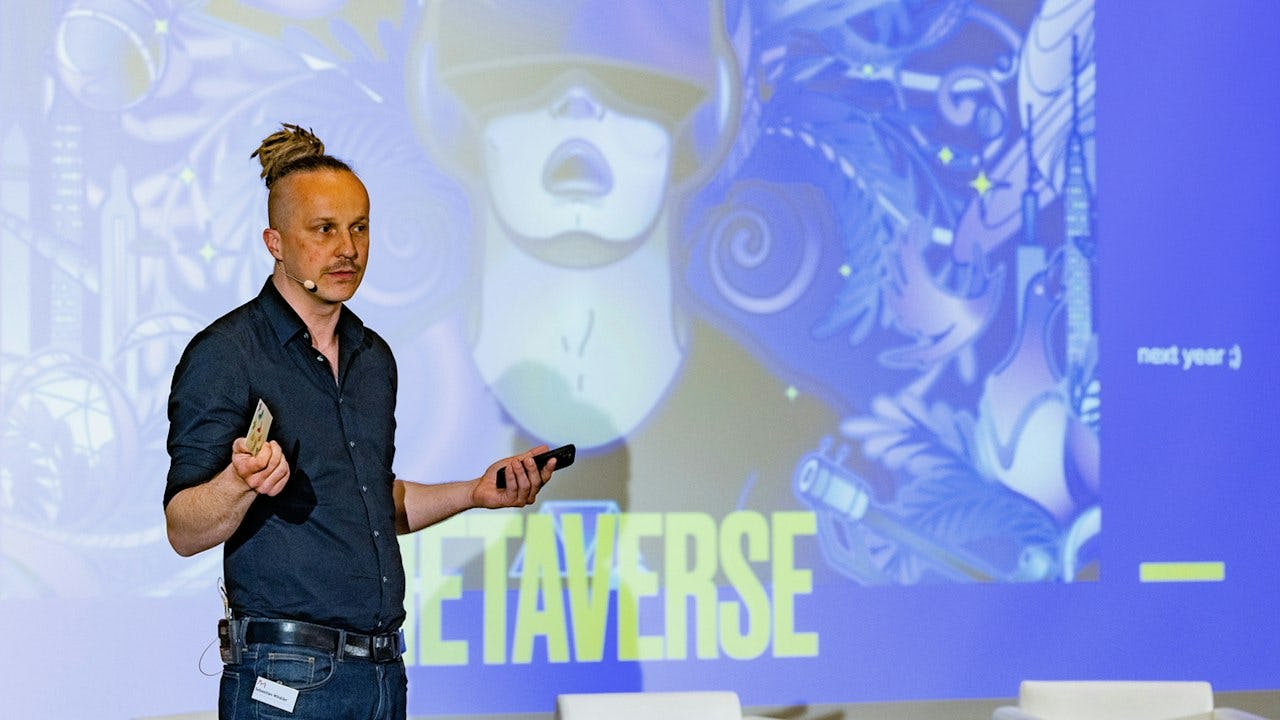What is the Metaverse?
The metaverse is a virtual world, either in 3D or as an extension of our real world, where people interact through a virtual or augmented experience. The concept has been around for a long time, but its form is now changing rapidly – and so are the potential applications.
The metaverse is a kind of digital city that you can access in a variety of ways. Instead of a car, plane, or train, you use Apple, Google, Meta, or Microsoft transportation to get around in the metaverse. Once you are in the city, you can do all sorts of things: work, study, go to a sporting event or concert, and shop. To interact during such an experience, you use a digital device such as a smartphone, computer, or VR glasses.
More and more digital worlds will emerge in the future, which you will be able to access separately but which will sometimes be connected. You probably already use some of these worlds without even realizing it – just think of the head-up display in your car or an app that lets you admire your new kitchen or bathroom in 3D.
What are the benefits?
The thing that sets the metaverse apart from other forms of digital information transfer is experience and perception. Whereas in a normal video call you can never look the person you are talking to straight in the eye (either you look into the camera and they experience it as you looking straight into their eyes, or you look into their eyes and they experience it as you looking at something next to them), in the metaverse you get a ‘real-life experience’. Depending on the device you are using, this experience will be more or less immersive. For example, you can view a newly built factory in 3D on a computer screen, or you can wear VR glasses that make it seem like you are actually walking through the factory. Because of the intensity of the experience, you retain the information more effectively and notice links and connections more quickly.
These features make the metaverse ideal for training people in an environment in which it is not easy to gain experience, such as training a surgeon or an engineer to maintain wind turbines. The technology is also ideal for marketing applications. For example, you could project your new car onto your own driveway and into your own garage to give you a better idea of how much space is left for your bike. The big game-changer in B2C will be AR or VR glasses that look like regular glasses and are just as comfortable to wear.


